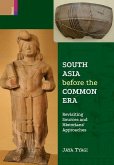Were colonial rulers in India worse than other governments and if so why? To consider those questions, the first part of Benign Imperialism? examines confidential discussions within the Government of India concerning official misconduct, law, and public benefit, particularly in the Bengal Presidency in the late nineteenth and early twentieth centuries. Officials debated the purpose and methods of British rule, how to punish civil servants' misconduct, the relationship between executive and High Court, and the importance of public opinion in India (and Britain). The book also considers these issues by referring to court cases and some British Parliamentary Papers. Part two turns to policies and local administration, revealing shortcomings including poor focus and police corruption. It assesses the basis of government understandings and describes conditions of village life and the local experience of British rule. The last two chapters look at examples of policies reacting to need and intended to be beneficial, with the longest discussion being about rural irrigation.
Bitte wählen Sie Ihr Anliegen aus.
Rechnungen
Retourenschein anfordern
Bestellstatus
Storno








